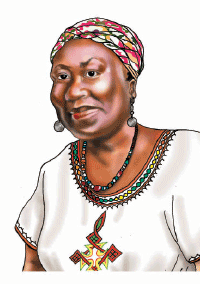By Remi Sonaiya
A Nigerian couple lived next to the residence of the Nigerian ambassador in Harare, Zimbabwe. On the other side of the Nigerian ambassador lived the British ambassador to that country. On a certain occasion the two ambassadors and the Nigerian couple happened to travel to London on the same airplane. The Nigerian couple, already seated, saw the Nigerian ambassador enter the aircraft, followed by three men; one carried a briefcase, one an iPad, and the third a spectacle case. The three men followed the ambassador into the Business or First Class section of the aircraft and re-emerged thereafter to take their seats in the economy section. Not long afterwards, the British ambassador arrived carrying his suitcase, and he too went into the Business or First Class section.
Upon arrival at the Heathrow airport, the interested couple waited to see how the story would play out regarding luggage collection and departure from the airport. The Nigerian ambassador arrived at the baggage collection hall and took a seat; his attendants handled his luggage, piling about six suitcases onto trolleys. The British ambassador picked his suitcase from the carrousel and walked out. The couple, who had retrieved their own luggage already, followed him. He got outside, hailed a taxi and left the airport. The couple waited to see what would happen with their country’s ambassador. Not long afterwards our man arrived, trailed by his three attendants wheeling trolleys. Four vehicles pulled up. Our honourable ambassador enters one of them and drives off; the three attendants each enter a car with their luggage and leave the airport.
I have spent the week at a conference in Ghana where about thirty persons from various West African countries have been brainstorming on issues relating to the very slow pace of development in our region and the continent as a whole, and the steps we would need to take in order to turn our story around. It was one of the participants who shared the story just narrated. An important and recurring question throughout the conference has been that of how to hold our leaders accountable. When we know, as we definitely do, that those who are in authority over us use a sizeable proportion of our resources to feed their personal greed, what do we do? How do we institute a culture of public service that does not view the opportunity to occupy public office as an occasion to live big at the expense of the people? Why is it, to begin with, that our governments make such sums of money available to those in position, enabling them to hire a retinue of staff and placing a fleet of cars at their disposal? How shall we ever develop if we continue to squander such a huge part of our resources?
An important part of the conference program was a visit to the Elmina Slave Castle in Cape Coast. The organisers of the program called it a pilgrimage. It was intended to help us remember our past as Africans, relive to a certain degree what our ancestors endured, and then interrogate ourselves as to how far we have progressed since our days of slavery, if indeed there has been any significant progress at all. An interesting piece of information received during the tour of the castle was that a couple of years ago there was an experiment carried out in that location. A group of sixty women, all volunteers, clad only in flimsy cloths, were locked up in one of the dungeons which normally held one hundred female slaves. Typically, the slaves were held there for three months before being shipped out to the Americas. These volunteers were held there overnight, for “just” twelve hours. The tour guide informed us that at the end of those twelve hours the stench in that room was absolutely unbearable. One woman, it was said, at some point felt her cloth getting moist – that was because another woman close to her had urinated. No, there was no toilet in that room for them to use during those twelve hours.
While a visit to any of the slave ports dotting the coastline of West Africa – be it Badagry in Nigeria, Cape Coast in Ghana, or Goree Island in Senegal – normally brings up a great deal of anger because of the unimaginable cruelty that the Whites visited on our forefathers, a question which inevitably follows in the minds of honest and thoughtful Africans is the following: But why is our condition still pretty much deplorable, even after slavery has been abolished since the 19th century and it is several decades since our nations attained independence from their former colonial masters? Sure, we are no longer held in dungeons and shipped off into slavery against our will; but are many of our people not still bound in chains, having their human dignity denied?
This brings us back to the story of the Nigerian ambassador. Just as the Europeans who enslaved us believed that we were not really human and worthy of personal dignity, so also our leaders in general fail to recognise and accept that every single life has value and is worthy of dignity and care. If twenty percent of the budget of Nigeria is allocated to themselves by the members of the National Assembly (as claimed by one-time governor of the Central Bank and now Emir of Kano, Alhaji Lamido Sanusi), is it not clear that, in their thinking, some Nigerian lives are not worth preserving?












